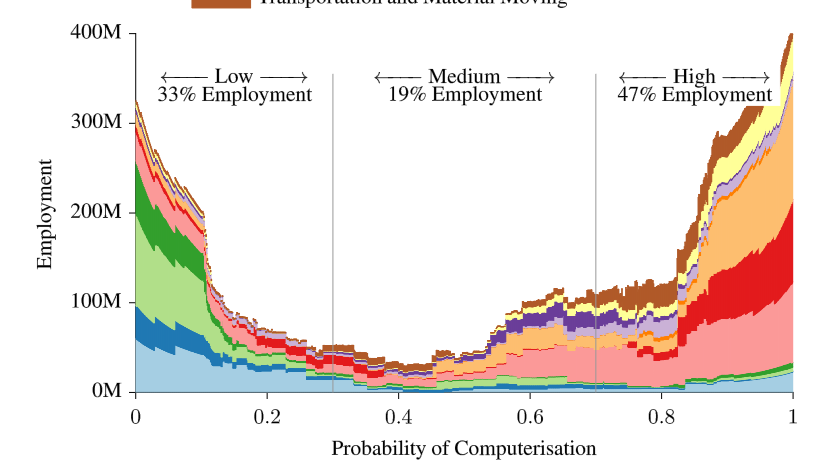Sarah Huckabee Sanders’s Hallucinatory Vision Of America
Sarah Huckabee Sanders, Trump’s Press Secretary, delivered the Republican response to President Biden’s State of the Union address last Tuesday. It was vintage Sanders, packed with lies.
I see three themes in the speech: self-promotion, bashing Joe Biden and the Democrats, and amplifying the obsessions of the Qrazy base. There were also subliminal themes visible primarily to true believers.
Self-promotion
Sanders reminds us she is a “mom” of three, the youngest governor in the nation, and has big plans for conservative education in Arkansas. She gives off strong Trump vibes. Just before the end of the speech she tells us she accompanied Trump on a surprise trip to Iraq.
One of the young soldiers yelled from the back, ‘Mr. President, I reenlisted in the military because of you.’ The President said, ‘and son, I am here because of you.’
“Shortly after, that young soldier came up to me and said, ‘Sarah, you have a tough job.’ I told him ‘What I do is nothing. You take bombs and bullets. That’s a tough job.’
“And in a moment that I know I’ll cherish for the rest of my life, that soldier reached up, and pulled the Brave Rifles Patch he wore on his shoulder and placed it into my hand, a sign of ultimate respect, and said, ‘Sarah, we are in this together.’“Overwhelmed with emotion and speechless, I just hugged him, with tears in my eyes and a grateful heart for our heroes who keep us free.
It’s not quite Trumpian. That would require the soldier to have tears in his eyes. Also, gag.
Bashing Joe Biden
Sanders gives us an apocalyptic view of the current state of the union. She asserts that Biden and the Democrats are destroying the country with their terrible high inflation brought on by terrible spending, terrible border crisis, terrible tax burdens, terrible crime rate, terrible weakness on China, and other terrible stuff. She delivers this nonsense just as seriously as she all her other lies.
Right-Wing Obsessions
Let’s look at two excerpts from the speech.
In the radical left’s America, Washington taxes you and lights your hard-earned money on fire, but you get crushed with high gas prices, empty grocery shelves, and our children are taught to hate one another on account of their race, but not to love one another or our great country.
The part about lighting your money on fire is hilariously deluded considering how much of that money is spent in Red States. The idea that the President controls gasoline prices is delusional, and ignores the steps taken Biden to lower them and the record profits of the oil business and the refusal of Senate Republicans to deal with inflation. Sorry, I know it’s pointless to discuss reality in this context and it won’t happen again.
Sanders is determined to do something about Critical Race Theory and indoctrination which must be rampant in Arkansas schools, presumably as a result of the failure of her Republican predecessor as governor. Apparently she thinks the dominant leftist culture in Arkansas is using Critical Race Theory to indoctrinate kids into hating one another on account of race and despising our country, and she’s not going to go along with that.
Now consider this passage:
And while you reap the consequences of their failures, the Biden administration seems more interested in woke fantasies than the hard reality Americans face every day. Most Americans simply want to live their lives in freedom and peace, but we are under attack in a left-wing culture war we didn’t start and never wanted to fight.
“Every day, we are told that we must partake in their rituals, salute their flags, and worship their false idols, all while big government colludes with Big Tech to strip away the most American thing there is—your Freedom of speech.
“That’s not normal. It’s crazy, and it’s wrong.
Let that paranoid fantasy sink in. Remember, she’s normal, you’re crazy.
Dog Whistles
I’m not fluent in Qrazy tropes so I’m certain I don’t get all of the subliminal messages she’s delivering. But here are a couple of things.
Evangelism. Her religious fervor is strong. She survived thyroid cancer, and she and her family “kept our faith and persevered”. Her mother had spinal cancer at the age of 20 and was told she might not survive but certainly wouldn’t have children. And yet here’s Sarah [implying it’s a miracle]. She adds that “faith propels us to charge boldly ahead”. Throughout the speech you can hear the echoes of St. Paul, Eph. 6:10-12:
10 Finally, be strong in the Lord and in his mighty power. 11 Put on the full armor of God, so that you can take your stand against the devil’s schemes. 12 For our struggle is not against flesh and blood, but against the rulers, against the authorities, against the powers of this dark world and against the spiritual forces of evil in the heavenly realms.
Racism is over.
Down the street from where I sit is my alma mater, Little Rock Central High. As a student there, I will never forget watching my dad, Governor Mike Huckabee, and President Bill Clinton hold the doors open to the Little Rock Nine, doors that forty years earlier had been closed to them because they were black. Today, those children once barred from the schoolhouse are now heroes memorialized in bronze at our statehouse.
So that’s all we need to do, except we can’t teach CRT because it says that racism is not over.
Recall that bit about “lighting your tax money on fire”. That’s a dog whistle meaning the money is being spent on those undeserving [not-white] people, not the deserving {white people]. It’s a racist trope dating back at least to Reconstruction.
Democrats are the real fascists. She repeats the idea that Democrats want to control “you”, the decent people. There are no examples of this, except the part about forcing “you” to worship the false idols of the Democrats which is not a real thing.
Trump is too old to run. Throughout the speech, Sanders reminds us that she’s really young, and that there are lots of other young, vigorous leaders in the conservative movement. Biden is old. So is Trump. Time for them to be replaced.
Press coverage. It’s pretty much “This is normal”. Greg Sargent points out that she’s speaking in a code not known by normal Americans, but I haven’t seen anything else. I guess it is normal for the crazy party and the rest of us should just get used to it.
=====
Updated to correct errors about source of lies on the size of Trump’s inauguration crowd. It was Sean Spicer, not Sanders. H/T commenter Matt___B. And Sanders was not the first of Trump’s Press Secretaries.





![[Photo: Seth Doyle via Unsplash]](https://www.emptywheel.net/wp-content/uploads/2017/07/Laughing_SethDoyle-Unsplash.jpg)

